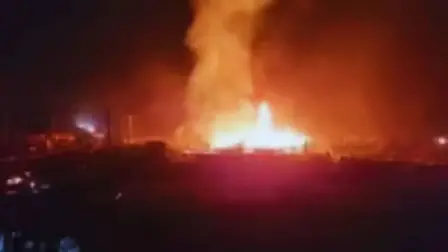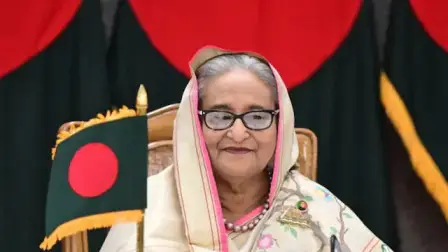
The Indian government informed the Supreme Court on Wednesday that it had received feedback from seven states regarding the request for legal recognition of same-sex marriages. Among these states, Rajasthan, Assam, and Andhra Pradesh have opposed the request, while Sikkim, Maharashtra, Uttar Pradesh, and Manipur have asked for more time to consider it.
After petitions were filed with the Supreme Court requesting the legalisation of same-sex marriages, The Centre had requested the opinions of all states and Union territories.
During the hearing before a five-judge Constitution Bench headed by Chief Justice of India D Y Chandrachud, Solicitor General Tushar Mehta presented the responses received from the states on record. The other judges on the bench are Justices S K Kaul, S R Bhat, Hima Kohli, and P S Narasimha.
One of the states that responded, Rajasthan, which is ruled by the Congress, stated that the prevailing public sentiment in the state seems to be against same-sex marriages. However, the state added that if two individuals of the same sex choose to live together willingly, it cannot be considered immoral.

According to a report from its social justice and empowerment department, the state of Rajasthan claimed that the legalisation of same-sex marriages could create instability in the social structure, which could have negative consequences for both the family and society as a whole.
The state government of Rajasthan wrote to all district collectors and received feedback indicating that there is no prevalence of same-sex marriages in any district, and that legalising such practices would go against public opinion. The state also stated that if there was public support for same-sex marriages, either the state legislature or the Parliament would have taken action by now.
The government of Andhra Pradesh, which is ruled by the YSR Congress, consulted with various religious leaders. It reported that Hindu, Muslim, and Christian religious leaders all opposed the plea. The government stated that Christian bishops and Jain monks opined that same-sex attraction is caused by hormonal changes in the body, and that people experiencing this condition should be treated with sensitivity and respect.
After considering various opinions, the state stated that it does not support same-sex marriage or the LGBTQIA+ community.

The government of Assam, which is ruled by the BJP, argued that legalising marriages between same-sex and LGBTQIA+ couples would lead to new interpretations and challenge the validity of marriage and personal laws in a culturally diverse state with different religions, customs, and beliefs. The government added that the issue requires broad discussions on various aspects of marriage as a social institution, including across different sections of society. However, according to legal understanding, marriage is an agreement or contract between two individuals of opposite genders.
The state also emphasised that the power to make laws lies with the legislature, both at the state and central levels, and suggested that the courts should consider the fundamental principles of the democratic structure. It pointed out that marriage, divorce, and related subjects fall under entry 5 of the concurrent list in the Constitution.
Therefore, the Assam government stated that it opposes the views expressed by the petitioners before the Supreme Court.
The governments of Sikkim, Maharashtra, Uttar Pradesh, and Manipur have requested more time to formulate their positions on the matter. The government of Sikkim stated that it is setting up a committee to conduct a comprehensive study and assess the impact on social customs, practices, values, and norms after consulting with all stakeholders.
The petitioners have requested a declaration that same-sex couples have the right to marry and for their legal recognition under The Special Marriage Act, 1954. Mehta argued that the court should not use its discretion to merely declare a right.
According to Mehta, if the court were to accept that the power to recognize any socio-legal relationship rests with the competent legislature, any declaration by the court would be considered a law under Article 141 of the Constitution of India, and would be binding on the entire country. This would prevent any further debate on the issue, which is necessary given the sensitivity and social impact of the issue at hand.
He also noted that a mere declaration by the court, either of acceptance of any right or acceptance of a relationship, can have unknown and unintended consequences, and the court lacks a mechanism to foresee how such a binding declaration could be used in the future.
Advocate J Sai Deepak, who represented the women’s organisation Bharatiya Stree Shakti, stated that while the Indic civilization may not have punished non-binary gender relationships, it is a fact that a union between two consenting heterosexual adults has been and still is the norm, and public morality is generally influenced by this norm. He argued that this is not a form of majoritarianism, but rather a fact of nature and society. The lawyer suggested that this issue should be left to the legislature to decide.








Copyright © 2026 Top Indian News
